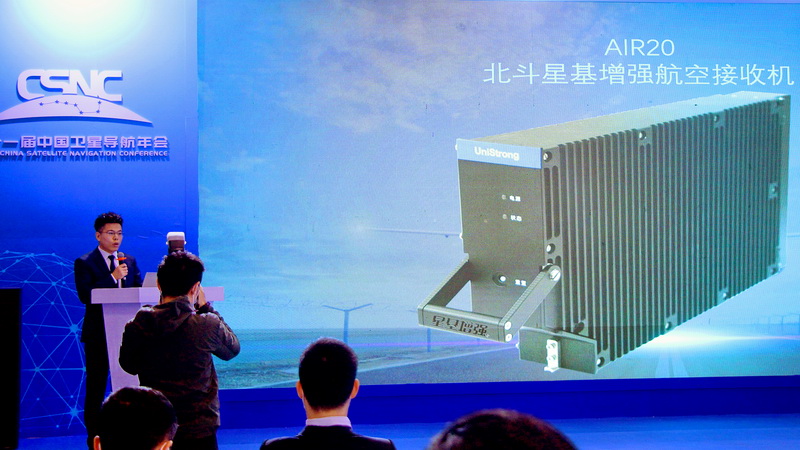 Posted by UniStrong
Posted by UniStrong
 2020-11-23
2020-11-23
 5935
5935
In the year of 2020, China successfully launched the final global BDS-3 satellite, fully completing the BeiDou global navigation satellite system constellation deployment. At the same time, UniStrong launched various BeiDou navigation terminal products based on the second-generation baseband chip of "Lyra", completing the productization and upgrading of the new system.
On November 23, at the 11th China Satellite Navigation Annual Conference, UniStrong officially released the first aviation receiver supporting the Beidou Satellite-based Augmentation System (BDSBAS) - AIR20, promoting the application of BDSBAS in the civil aviation field while further expanding its own product line.

AIR20 can receive and process the service signals of SBAS satellites. On the basis of supporting the single-frequency services of WAAS, EGNOS, MSAS, GAGAN and other systems, it has completed the upgrade of the reception and processing of BDSBAS-B1C and BDSBAS-B2a signals, realizing the single-frequency and dual-frequency multi-constellation SBAS positioning solution and protection level output to meet the needs of BDSBAS monitoring, evaluation, test verification, and demonstration applications.

AIR20 has built-in P40 BDS-3 high-precision positioning board. As a Phantom series positioning board developed based on the second-generation baseband chip of "Lyra", the P40 board can receive multi-constellation and multi-frequency GNSS signals, fully supporting the reception of BDS-3 satellite signals, and can be widely used for high-precision applications as surveying and mapping, deformation and monitoring, aviation and marine. In addition, equipped with a brand-new "Cygus" anti-jamming technology and Athena RTK engine, P40 board has a better performance in complex environments.
